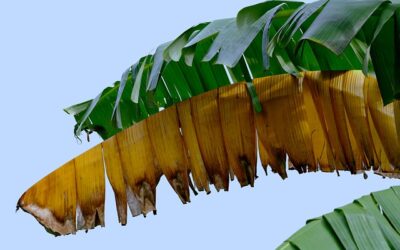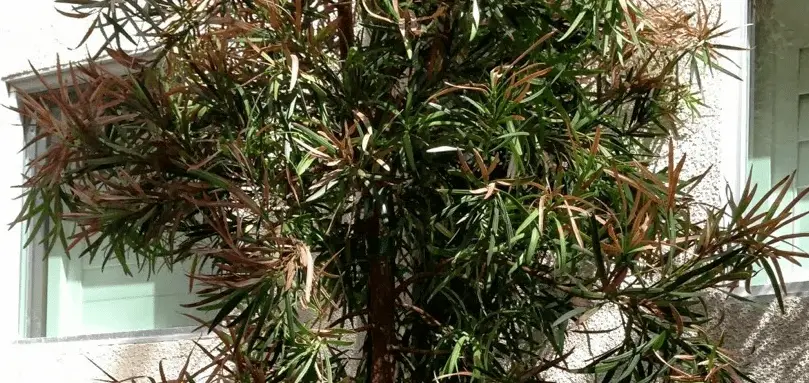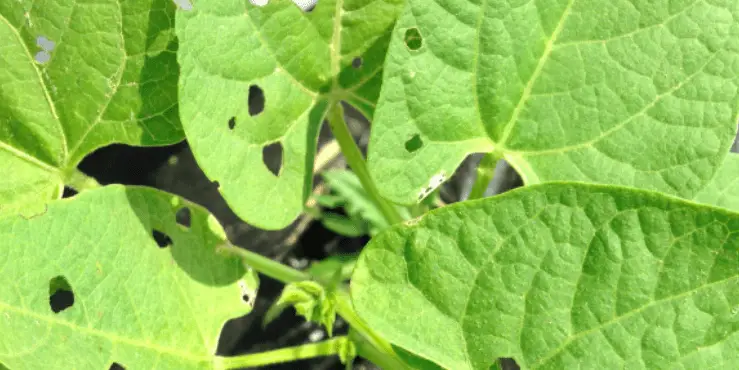Russian sage is a beautiful, fragrant plant that is often used in landscaping. It has violet-blue flowers and grows to be about three feet tall. But before you plant Russian sage in the garden, it’s good to know if deer will eat it or not.
Deer are known to eat just about anything, so you might think that they would munch on Russian sage without hesitation. However, this is not always the case. In this blog post, we’ll take a look at whether or not deer are likely to eat Russian sage plants.
Do Deer Eat Russian Sage?
No, deer do not typically eat Russian sage. This is because Russian sage is an aromatic herb that is not very palatable to deer. In fact, deer will usually avoid eating all kinds of herbaceous plants. So, if you’re looking to add some Russian sage to your garden, you can rest assured that deer are not likely to eat it.
There are a few exceptions, however. If deer are desperate for food and there is nothing else around, they may be willing to eat Russian sage. But generally speaking, you don’t have to worry about deer eating Russian sage in the garden.
Plus, deer can accidentally step on and damage Russian sage plants, even if they don’t eat them. So it’s always a good idea to take steps to protect your plants from deer, even if they’re not particularly tasty to them.
How to Protect Russian Sage from Deer?
To keep your garden safe from deer, there are a few things you can do.
1. Remove Sources of Food
The first step is to remove any sources of food that might attract deer to your garden in the first place. Whether you have a fruit tree, hostas, or another type of plant that deer like to eat, make sure to remove it from the area around your Russian sage. This will help to keep deer away from your plants.
2. Fencing
If you can’t remove the food source entirely, you can try fencing it in so that deer can’t get to it. This is often effective in keeping deer out of gardens. There are a few different types of fencing that you can use, such as electric fences, netting, or chicken wire.
Whichever type of fence you choose, make sure that it is high enough and strong enough to deter deer from getting into your garden. Deer are persistent animals, so 6-8 feet high fencing is typically necessary.
Fencing can be a lot of work and cost, but it’s often the best way to keep deer out of your garden for good. You can use netting if you have a smaller garden, but it’s important to make sure that the netting is tight enough so that deer can’t get through it.
3. Deer Repellents
Another option is to use deer repellents. These are chemicals or other substances that deer don’t like and will avoid. There are a few different types of deer repellents, such as sprays, granules, and liquids.
You can find deer repellents at most garden stores or online. Be sure to read reviews to find the most appropriate repellent for your needs. I like this Bobbex repellent because it is long-lasting and effective.
Deer repellents are often effective in keeping deer away from your garden, but they may need to be reapplied regularly. They can also be washed away by rain or snow, so keep that in mind when using them.
4. Hanging Baskets
Deer are tall creatures, but you can still deter them from eating your plants by hanging them up out of reach. This is especially effective for small gardens or potted plants.
You can buy or make hanging baskets out of chicken wire, nets, or other materials. Be sure to choose a material that is strong enough to support the weight of your plants. The care you will your Russian sage will have to be slightly adjusted when hung, such as watering more often, but it will be worth it to keep your plants safe from deer.
Plus, hanging baskets are a great way to add extra character and interest to your garden. I like to hang mine next to doorways where they can be easily seen and admired.
Can Russian Sage Be Used as Deer-Resistant Fencing?
Yes! Russian sage can be used as a natural deer-resistant fence. Deer don’t like the smell or taste of Russian sage, so they will avoid it. This means that even if they walk up to your garden, they are less likely to enter it if there is Russian sage around.
To use Russian sage as a fence, plant it around the perimeter of your garden. You can also plant them in pots and place them along the edge of your garden. The more Russian sage you have, the better it will work as a deer-resistant fence.
Russian sage is a beautiful plant, so using it as a deer-resistant fence has the added benefit of making your garden look even nicer. Plus, it’s a low-maintenance plant that doesn’t require much care.
Conclusion
Sage is not on the menu for deer, so you can rest assured that your Russian sage plants are safe. By following the tips above, you can deter deer from entering your garden and eating your plants. Deer may be persistent, but with a little effort, you can keep them out of your garden for good.
Do you have any tips for keeping deer out of gardens? Share them in the comments below!
Happy gardening!
Tim is an avid gardener from the UK. He was the founder of PlantCarer.com from 2021 to Sep 2023. He sold PlantCarer.com to Aaron. He has since started his own business called Seed To Supper, which provides new gardeners all the materials you need in a box (pots, seeds, compost and instructions) to grow your own delicious and nutritious vegetables and herbs from start to finish – no garden required.









0 Comments